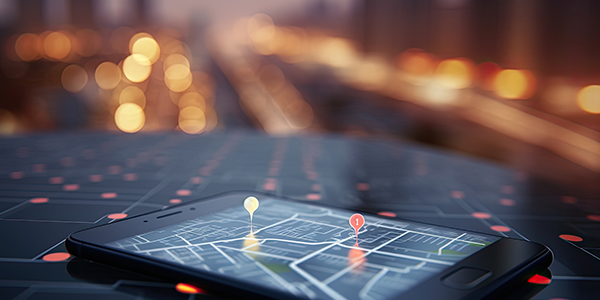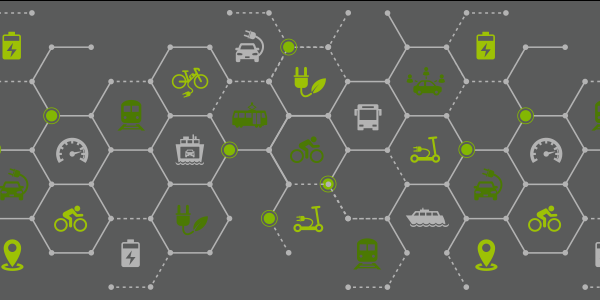

New Work, New Parking
The digitalization of many workplaces has allowed a variety of new forms of work for years. However, for a long time, they were only implemented in very few cases. The pandemic and its remote working requirements made clear that much more than previously ventured was possible in this respect.
Today, models such as 6-hour days, 4-day weeks, coworking and working from home are practically standard. Hybrid working in particular - switching flexibly between the company desk and other work locations - is no longer a buzzword, it is a philosophy that is here to stay. And why not? Digitalization has fundamentally changed the world of work, employees are working together across locations and knowledge is becoming increasingly important. This has changed the way work is organized in companies - just like the wishes of the employees. Everything points to the fact that companies practicing new working models are much more attractive to skilled workers.
Innovation instead of tradition
In many cases, it is about much more than "just" the organization of work. The concept of "New Work" describes an environment in which freedom, independence and participation are considered core values. The knowledge and information society in which we live today no longer works with the rigid processes and top-down organizational charts of the past. A paradigm change is needed: innovation instead of tradition.
What does this mean for physical workplaces, like the traditional desk with a screen on it? One thing is clear: the stationary workplace and the home office are being pushed back. They are replaced by remote presence, a mobile working culture, flexible working time models, virtual teams and the partial home office.
Companies have long been reacting to this development: office space is being reduced and the digital infrastructure expanded. Nowadays, 30 stationary workstations are enough for 60 employees. And more and more companies are not leaving it to chance how these workstations are distributed among the workforce during the week, but are actively controlling and managing the occupancy of desks and computers.
30 desks for 60 employees - why do we need 60 parking spaces?
The physical world is starting to adapt to the digital possibilities. Work equipment is no longer provided as a lump sum, but as required. Fixed costs are falling, efficiency and capacity utilization are increasing.
Wouldn't it be logical to use the same principle for company parking spaces as for desks? If only part of the workforce is physically present at any given time, if employees coordinate their work themselves, if freelancers are involved in projects, in other words if the company building becomes a hub for digital nomads: How can this new world of work be applied to the use of company-owned parking spaces?
The fact is: New Work and old parking - doesn't fit together! Because parking spaces can be managed just as effectively as desks. And it makes just as much sense. The amazingly simple tool for this is the digital parking management system from parkoneer. As soon as a company parking space is equipped with a barrier, camera-based license plate recognition and a lane assistant, parkoneer turns the parking area into a module of a holistic new working model.
New parking as an element of a more flexible and efficient working world
Let's go through a working day in the life of a New Worker: Emily has decided to work in the office on Tuesday and plans a few things for this. On Monday evening, she uses her employer's app to book a workstation from 11 am to 4 pm. She confirms her attendance at a meeting at 1 p.m. in room 46 and makes an appointment with team leader Monika in the event zone for 12 p.m. She then uses the parkoneer parking portal to book a parking space at the office building. She has entered her license plate number and reserves the desired parking time from 10.45 am to 4.15 pm. There is no charge this time because her company grants all employees 90 free "parking days" per year. The system confirms the booking. On Tuesday, Emily works from home for just under two hours and then packs her bag with her laptop, cell phone and headset. Mouse, keyboard, monitor and USB hub are ready at the booked workstation. Then she heads off and, because the peak of rush-hour traffic is already over, she arrives at the office parking lot quickly and relaxed at 10.50 am. At the entrance, the camera recognizes her license plate, the barrier opens and Emily parks her car in a parking lot.
Emily enjoys some nice benefits from this flexible parking arrangement:
- She is guaranteed to find a free parking space once the booking is confirmed.
- She can use flexible driving and working times that best suit her personal schedule - without worrying about the company parking lot, which may already be full.
- As she doesn't have to drive around looking for a parking space, she saves time and fuel, and her car doesn't emit any unnecessary emissions.
Your employer also benefits from this arrangement:
- At the same time as the office space and the technical equipment, the company can also reduce the number of parking spaces or dispense with an extension. This saves costs.
- As hybrid working offers a higher degree of flexibility and autonomy, it can lead to greater employee satisfaction - especially if the employees receive customized parking solutions.
- Companies that adapt the working environment to individual needs are more attractive to current and future professionals.
- Due to the reduced parking search traffic, the company can even include parking management with parkoneer in its CSR reporting.
parkoneer has set out to make static parking systems more dynamic. We make parking as flexible as the world of work and as individual as personal mobility. Digitalized parking management has all the prerequisites to support new ways of working. And only those who give their employees the opportunity to park as flexibly as they work can fully exploit the potential of New Work. That's why now is the time to focus on New Parking.


